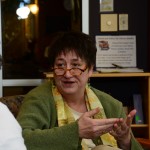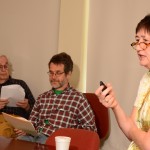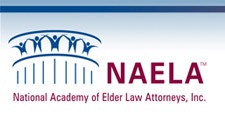
If the only tool in your toolbox is a hammer, everything looks like a nail – so the old saying goes.
That’s true of many lawyers. Many go straight from college to law school and from law school, straight to work in a law firm – even their summers are spent clerking for firms or judges. But if law is the only tool in your toolbox, a legalistic approach is your only frame of reference to address the problems clients bring to you.
This is one important way that Attorney Doris Gelbman is different from most lawyers – she has not always been a lawyer. Gelbman enjoyed success in two non-legal careers: first as a computer analyst; the second in radio and television. In those jobs she traveled around the globe; learning about other languages and cultures as well as international business practices and technology. Only much later did she attend college where she graduated with honors then shortly thereafter headed to law school. Why is this important? In contrast to many highly skilled lawyers, Gelbman approaches her clients’ problems and concerns using a variety of approaches. She uses experience, education and skills that includes, but is not limited to, a legal toolkit. A difference in style – and in substance.
Following law school, Gelbman went to work for a large law firm in Boston and spent valuable “hammer time” in the litigation department honing her new legal skills under the supervision of senior, experienced lawyers.
In mid-2009 Gelbman relocated to Virginia to care for her suddenly sick and now aging parents in Lynchburg, Virginia as well as two new grandchildren in Northern Virginia.
It was in this transition – from high powered “big-firm” attorney in Boston to primary caregiver for her own parents in rural Virginia – that Gelbman learned about the difficulties faced by the frail, sick, or simply aging and their families. And the challenges faced by their caregivers. She learned that the father she had always known as a highly capable, confident and competent man was now aged, weak, very sick, and often confused, depressed and frightened. Her mother, who had always partnered him through thick and thin for better or for worse – was suddenly worn out, confused, overwhelmed, emotionally overwrought and unsure of what to do and to whom to turn for help. They needed help; they needed an advocate.
Endless hours in hospitals and nursing facilities revealed that many, many patients and residents needed the same. But they did not have an advocate to help them. No one to speak for them when they cannot speak for themselves. No one to ask the tough questions of the doctors, the treatment team and social workers. No one to deal with Medicare or other insurers when the bills pile up in astronomical amounts.  No one to push back against the bill collectors. No one to help understand the thick contracts shoved at them by nursing facilities or the endless piles of forms from Social Services and healthcare workers. No one to apply for Veterans Benefits or Medicaid. No one to hire and monitor and the myriad caregivers and in-home providers that suddenly became necessary for their safety and well being. No one to manage and administer the dozens of powerful, sometimes dangerous medications. No one. No one they could rely upon and trust and who understood what the problems were and how they were feeling – exhausted, sick, in pain, depressed, overmedicated, overwhelmed. And many were declining precipitously. Some had even been neglected, abused, defrauded and exploited – by the very caregivers they trusted!
No one to push back against the bill collectors. No one to help understand the thick contracts shoved at them by nursing facilities or the endless piles of forms from Social Services and healthcare workers. No one to apply for Veterans Benefits or Medicaid. No one to hire and monitor and the myriad caregivers and in-home providers that suddenly became necessary for their safety and well being. No one to manage and administer the dozens of powerful, sometimes dangerous medications. No one. No one they could rely upon and trust and who understood what the problems were and how they were feeling – exhausted, sick, in pain, depressed, overmedicated, overwhelmed. And many were declining precipitously. Some had even been neglected, abused, defrauded and exploited – by the very caregivers they trusted!
Gelbman learned that when the elderly – or their adult children – have an advocate – someone reliable and understanding to help plan with them, to speak for them, to help weigh options and make good decisions, the older adult (and their family members) can concentrate on what is far more important: getting better and maintaining the best possible quality of life. Good care, better nutrition, fighting infection and depression, working on the physical and occupational therapy – these are the things that keep elders independent and allow them to stay safe and comfortable – and more often at home.
After success stabilizing her own parents’ situation, Gelbman decided to help those who were having difficulty helping themselves. In late 2009, Gelbman decided to turn her practice to taking on the role of of advocate for others. As a lawyer.
While waiting for her Virginia law license, she assisted in editing the latest edition of the definitive Massachusetts Practice manual’s section on Elder Law, working with Massachusetts’ most experienced elder law attorneys. Simultaneously, she volunteered for pro-bono work through the Elder Law Initiative at Legal Aid Justice Center in Virginia under LAJC’s senior staff elder-law attorneys. Durng this period and for the next two years, she volunteered with the Jefferson Area Board of Aging (JABA) to do work as a trained, volunteer ombudsman. As an ombudsman, she worked in local nursing homes to protect residents’ rights and assist residents and their families to resolve problems as a neutral third party advocate.
After successfully passing the Virginia Bar Exam, Gelbman opened her own practice and within a single year, developed a thriving practice and remains in high demand.

Gelbman is still an active volunteer and handling pro bono cases for low income citizens through Central Virginia Legal Aid Services (CVLAS) and LAJC. She served as a member of the steering committee of Geriatric Collaborative of Central Virginia (GCCV). Gelbman also an proponent of measures to prevent Elder Abuse and Exploitation through agencies such as the Greater Augusta Coalition Against Adult Abuse (GACAAA) and more recently convened the multi-jurisdiction and multi-disciplinary (Charlottesville, Albemarle County, Virginia and Federal agencies) build similar active protection for our community at the Jefferson Area Coalition to End Elder Abuse (JACEEA)

Ms. Gelbman is a frequent and popular speaker presenting on legal topics of interest to seniors. She appears monthly at the Center at Belvedere (formerly The Senior Center) She is a guest lecturer for the University of Virginia’s Law School Elder Law Clinic on issues related to Mental Capacity. She also frequently teaches at conferences and Continuing Legal Education on Mental Capacity, Elder Abuse, Surrogate Decision Making (Guardianship, Powers of Attorney).
Gelbman Law cultivates relationships with other professionals serving the elderly and their families to address the full spectrum of needs presented by our exploding aging populations – legal, social, medical, practical, financial and much more.
Gelbman an active member the National Academy of Elder Law Attorneys (NAELA) and its Virginia chapter, VAELA She is also a member of the Charlottesville/Albemarle Bar Association (CABA) serving as the chair of the Elder Law Sections and is a member of and the Women’s Bar section.
serving as the chair of the Elder Law Sections and is a member of and the Women’s Bar section.
Doris Gelbman is licensed to practice in all Virginia and Massachusetts state courts as well as the Federal District Court of Massachusetts and the Federal 1st Circuit Court of Appeals. She is also a Department of Veterans Affairs certified attorney.
Publications:
- Hierarchy of Sources for Choice of Law at the International Criminal Tribunal for Rwanda And Yugoslavia
- Politics, Religion and Money in the Maryland-Virginia Boundary Dispute (awarded the 2001 Wilcomb E. Washburn Student Prize for History)
Other Interests
- Painting (watercolor)
- International Law & Foreign Policy
- Travel
- History and Genealogy
- Politics
- Yoga
By accessing this website, you acknowledge that the information presented on this website is for educational purposes only and of a general nature. It is not to be construed as legal advice. No attorney-client relationship has been created by the use of this website. Laws and regulations vary from jurisdiction to jurisdiction. Please consult a competent, licensed attorney in your locality for answers to your specific questions.